Adult Screening
Screening helps to find serious health conditions early before you get any symptoms.
Please see below for information on which screening programmes are available. The NHS Tayside Adult Screening Annual Report for 2022 is also available below.
NHS Tayside Adult Screening Annual Report for 2022
Please see below for information on which screening programmes are available. The NHS Tayside Adult Screening Annual Report for 2022 is also available below.
NHS Tayside Adult Screening Annual Report for 2022
Abdominal Aortic Aneurysm (AAA) Screening
The aorta is the main artery that supplies blood to your body. It runs from your heart down through your chest and abdomen (tummy). As we get older, some people find the wall of the aorta in the abdomen can become weak and balloon out to form an aneurysm. This is called an abdominal aortic aneurysm or AAA.
Men aged 65 will be invited to attend a local clinic to receive an ultrasound scan which can detect Abdominal Aortic Aneurysms (AAA).
Most men are unaware that they have the condition and will have no symptoms; for many men the rupture of the aneurysm is the very first sign of the problem.
Ruptures can result in death - around 8 in 10 ruptures will prove fatal.
Using an ultrasound scan, which is quick and painless, can determine if an aneurysm is present, with results made available instantly after the scan.
If you are a man aged over 65 years of age and not had the opportunity to attend screening, you can request screening by calling the AAA screening office on (01382) 496393.
Most men who attend AAA screening will have a normal result. If an aneurysm is found results of the scan will be sent to the man's GP who will discuss the results with them. Depending on the result, the man may need to be monitored regularly (surveillance) or referred to a specialist surgeon.
Men aged 65 will be invited to attend a local clinic to receive an ultrasound scan which can detect Abdominal Aortic Aneurysms (AAA).
Most men are unaware that they have the condition and will have no symptoms; for many men the rupture of the aneurysm is the very first sign of the problem.
Ruptures can result in death - around 8 in 10 ruptures will prove fatal.
Using an ultrasound scan, which is quick and painless, can determine if an aneurysm is present, with results made available instantly after the scan.
If you are a man aged over 65 years of age and not had the opportunity to attend screening, you can request screening by calling the AAA screening office on (01382) 496393.
Most men who attend AAA screening will have a normal result. If an aneurysm is found results of the scan will be sent to the man's GP who will discuss the results with them. Depending on the result, the man may need to be monitored regularly (surveillance) or referred to a specialist surgeon.
Breast Screening
Breast screening is offered to reduce the number of women who die from breast cancer. This is done by finding breast cancers at an early stage when they are too small to see or feel.
Breast screening does not prevent you from getting breast cancer.
The East of Scotland Breast Screening Service is part of the Scottish Breast Screening Programme. Women in Tayside, who are aged 50 to 70, are invited for mammography once every three years. This can be either to a mobile unit or to the Breast Screening centre in Ninewells Hospital, Dundee.
Women over the age of 70 are not automatically invited for screening but are still welcome to attend every three years and should contact the East of Scotland Breast Screening Service to arrange an appointment
Breast screening is offered to reduce the number of women who die from breast cancer. This is done by finding breast cancers at an early stage when they are too small to see or feel.
Breast screening does not prevent you from getting breast cancer.
The East of Scotland Breast Screening Service is part of the Scottish Breast Screening Programme. Women in Tayside, who are aged 50 to 70, are invited for mammography once every three years. This can be either to a mobile unit or to the Breast Screening centre in Ninewells Hospital, Dundee.
Women over the age of 70 are not automatically invited for screening but are still welcome to attend every three years and should contact the East of Scotland Breast Screening Service to arrange an appointment
Breast screening is offered to reduce the number of women who die from breast cancer. This is done by finding breast cancers at an early stage when they are too small to see or feel.
Bowel Screening
Bowel cancer is the third most common cancer in Scotland with almost 4,000 people diagnosed with the disease every year.
Although bowel cancer is common, it is also highly treatable if detected early. If we find bowel cancer early enough, there's more than a 90% chance of successful treatment. The sooner it's caught, the easier it is to treat.
All men and women aged 50-74 are invited for bowel screening. Bowel screening involves taking a simple test at home every two years.
If you are 75 or over you can still take a bowel screening test every two years if you want to, a test kit will not be sent automatically to you though you will need to request one.
Cervical Screening
Cervical screening (sometimes called the 'smear test') is a test to check for cervical cancer caused by the human papilloma virus (HPV), which is very common and easily spread by sexual activity.
Routine cervical Screening is offered every 5 years to all women (and trans men with a cervix) in Scotland, aged between 25-64 years of age.
Non-routine screening may be offered more frequently. Some, but not all changes found by cervical screening tests may give an early warning sign to the possibility of developing cervical cancer.
Routine cervical Screening is offered every 5 years to all women (and trans men with a cervix) in Scotland, aged between 25-64 years of age.
Non-routine screening may be offered more frequently. Some, but not all changes found by cervical screening tests may give an early warning sign to the possibility of developing cervical cancer.
Diabetic Eye Screening
Diabetic Retinopathy is a condition that occurs when diabetes affects the small blood vessels in the retina, which is at the back of the eye. The blood vessels in the retina can leak or become blocked.Top of Form
This condition may cause blindness or serious damage to your eyesight. In its early stages there are no symptoms so you may not realise that you have diabetic retinopathy.
If you have diabetes then screening is important because your eyes are at risk of damage from diabetic retinopathy. Screening is a key part of your diabetes care and can reduce that risk by detecting the condition early before you notice any changes to your sight.
Untreated diabetic retinopathy is the most common cause of sight loss in people of working age. When the condition is caught early, treatment is effective at reducing or preventing damage to your sight.
Screening is offered to anyone with diabetes aged 12 or over every year and is a key part of diabetes care. Regular eye tests are still required and you should continue to visit your optician regularly for a free check as well.
This condition may cause blindness or serious damage to your eyesight. In its early stages there are no symptoms so you may not realise that you have diabetic retinopathy.
If you have diabetes then screening is important because your eyes are at risk of damage from diabetic retinopathy. Screening is a key part of your diabetes care and can reduce that risk by detecting the condition early before you notice any changes to your sight.
Untreated diabetic retinopathy is the most common cause of sight loss in people of working age. When the condition is caught early, treatment is effective at reducing or preventing damage to your sight.
Screening is offered to anyone with diabetes aged 12 or over every year and is a key part of diabetes care. Regular eye tests are still required and you should continue to visit your optician regularly for a free check as well.

